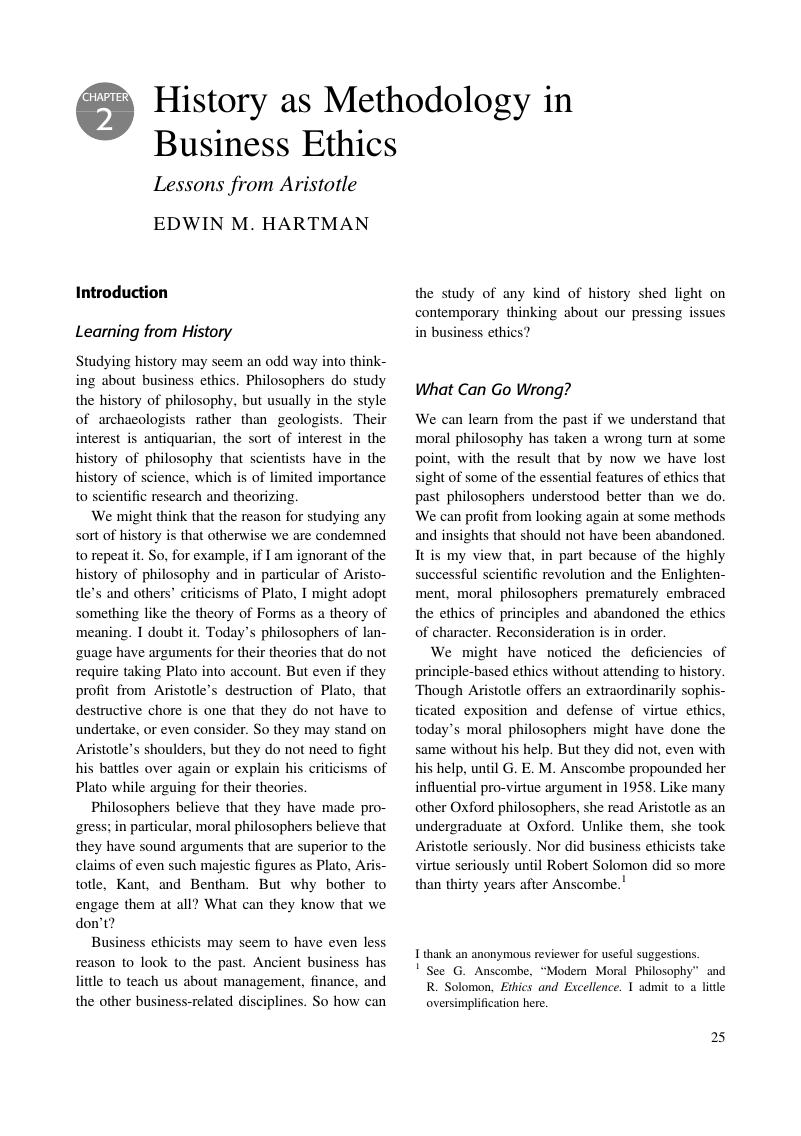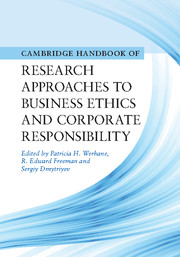Book contents
- Cambridge Handbook of Research Approaches to Business Ethics and Corporate Responsibility
- Cambridge Handbook of Research Approaches to Business Ethics and Corporate Responsibility
- Copyright page
- Contents
- Figures
- Tables
- Contributors
- Introduction
- Part I Philosophical Approaches
- Historical Approaches
- Chapter 1 The Use of Historical Figures as a Research Approach
- Chapter 2 History as Methodology in Business Ethics
- Chapter 3 The Role of Continental Philosophy in Business Ethics Research
- Normative Approaches
- Part II Empirical Approaches
- Part III A Researcher in the Spotlight
- Index
- References
Chapter 2 - History as Methodology in Business Ethics
Lessons from Aristotle
from Historical Approaches
Published online by Cambridge University Press: 10 November 2017
- Cambridge Handbook of Research Approaches to Business Ethics and Corporate Responsibility
- Cambridge Handbook of Research Approaches to Business Ethics and Corporate Responsibility
- Copyright page
- Contents
- Figures
- Tables
- Contributors
- Introduction
- Part I Philosophical Approaches
- Historical Approaches
- Chapter 1 The Use of Historical Figures as a Research Approach
- Chapter 2 History as Methodology in Business Ethics
- Chapter 3 The Role of Continental Philosophy in Business Ethics Research
- Normative Approaches
- Part II Empirical Approaches
- Part III A Researcher in the Spotlight
- Index
- References
Summary

- Type
- Chapter
- Information
- Cambridge Handbook of Research Approaches to Business Ethics and Corporate Responsibility , pp. 25 - 35Publisher: Cambridge University PressPrint publication year: 2017

